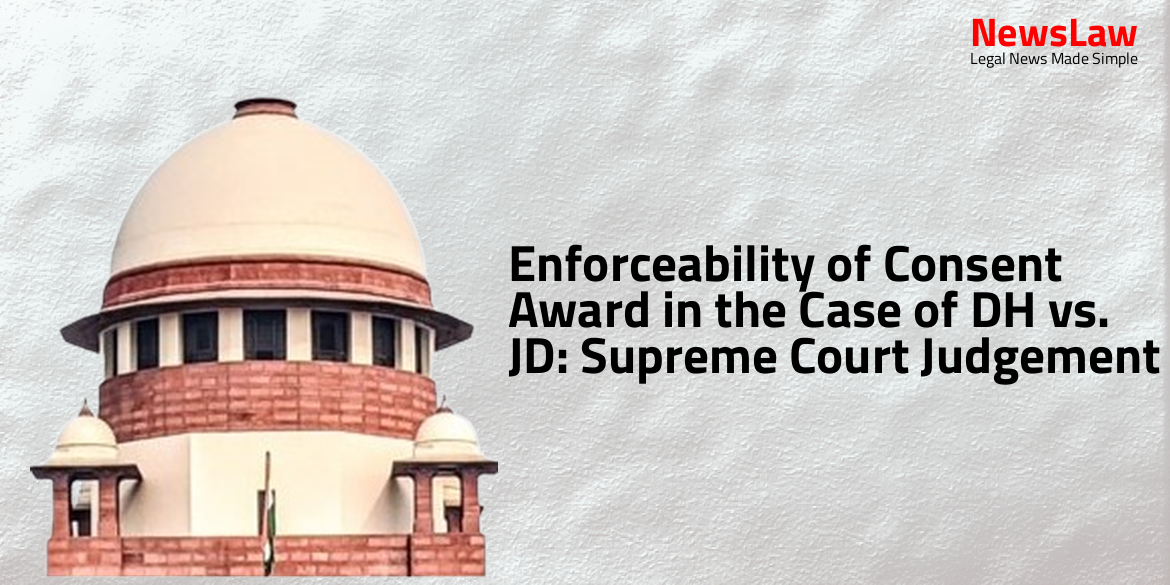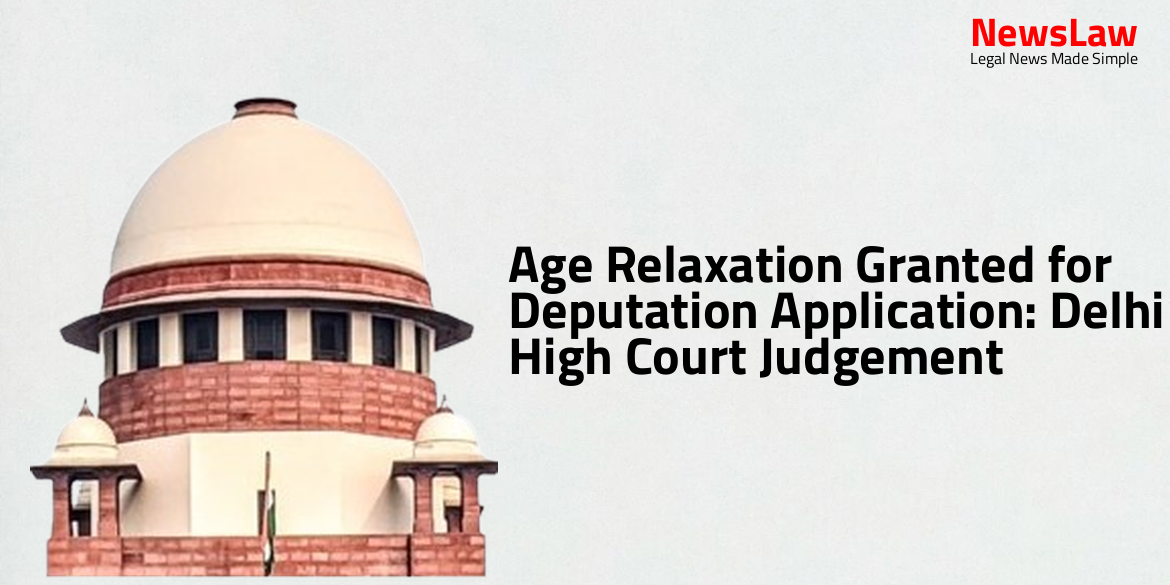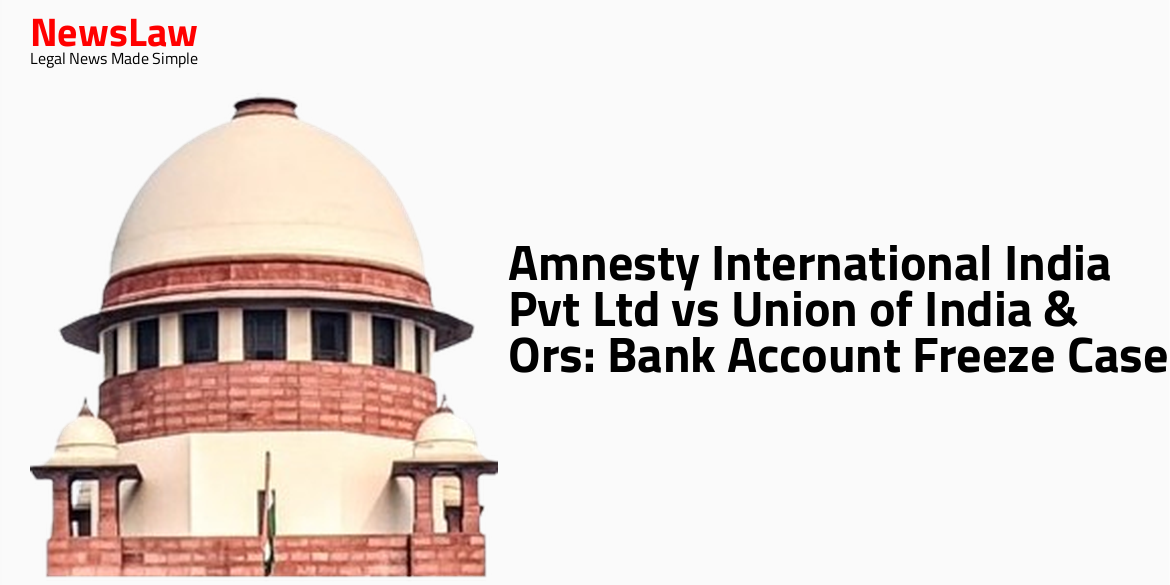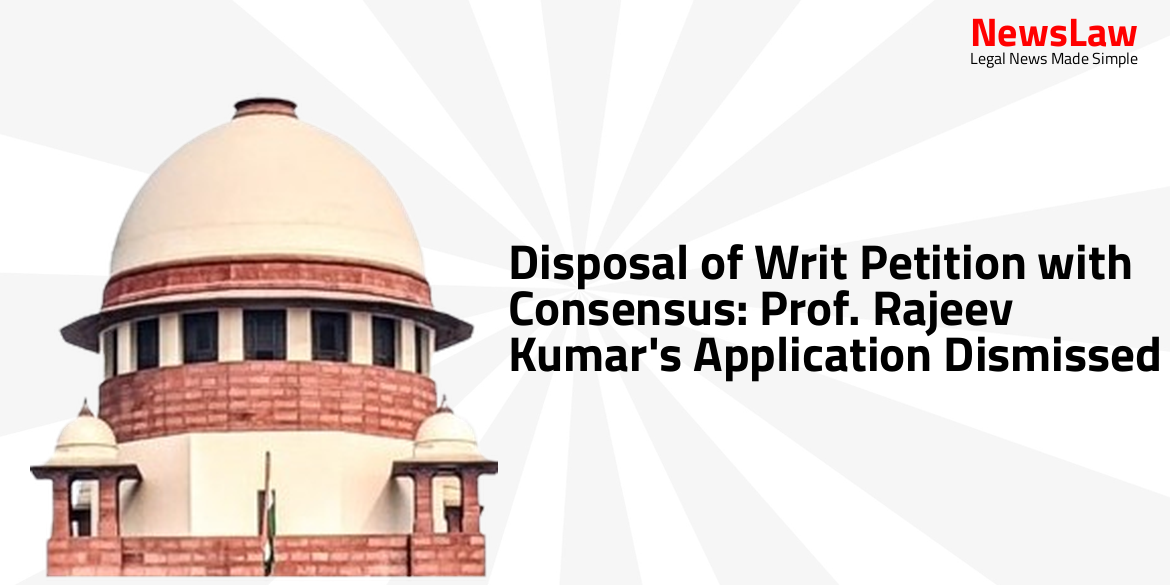In a significant legal case, the Supreme Court of India delivered a judgement on the enforceability of a consent award in the matter involving Declaratory Holder (DH) and Joint Defendant (JD). The court’s decision has far-reaching implications for arbitration proceedings and settlement agreements. Let’s delve into the details of this crucial ruling and its impact on the parties involved.
Facts
- Petition filed under Section 36 of the A&C Act for enforcement of arbitral award dated 30.03.2015
- Consent award to pay Rs 20,14,06,953/- along with future interest disputed by JD
- Multiple petitions filed by JD under A&C Act sections 11(6), 14(2), and 15(2) dismissed by the Court
- Disputes arose regarding settlement between parties, approached the AT
- Order dated 19.09.2017, AT revived arbitral proceedings based on consent award
- Two applications by JD for setting aside the consent award and amending its claim dismissed by AT
- JD paid Rs. 2 crores on 09.03.2015
- SLP against the judgement/order dated 14.09.2018 dismissed by the Supreme Court
- Review petition filed against certain observations also dismissed
- JD’s requests for extensions granted by the Court
Arguments
- The opposition by JD is not a challenge to the validity of the consent award.
- DH argued that JD’s opposition to enforcement of the consent award is futile after dismissal of objections under Section 34 of the A&C Act.
- JD countered DH’s arguments stating that even if it failed to challenge the award under Section 34, the award does not establish liability for JD to pay the claimed sums.
- Clause III(D) of the settlement agreement stated that if JD failed to pay the sum by 30.11.2015, the parties would revert to the stage before the settlement application.
- This clause meant that the arbitral proceedings would be revived, original claims would be reinstated, and JD would not have to pay the sums agreed upon in the consent award.
- The agreement essentially absolved JD from the financial commitments outlined in the consent award if payment was not made by the specified date.
Analysis
- The Arbitral Tribunal (AT) indulged the Joint Defendant (JD) unchallenged by the Declaratory Holder (DH) until 07.07.2017
- Settlement attempts between parties failed, leading to consequential action as per AT’s order
- Consent award modified or novated with party consent for time extensions only
- JD granted extensions till 31.12.2015 by AT
- Legal existence of consent award confirmed, maintaining enforceability
- Arbitral proceedings revived on 19.09.2017 after parties’ resolution statement
- JD read consent award correctly, believing no monetary liability under it
- DH sought court assistance to recover dues as per consent award clauses
- Dismissal of JD’s application to set aside arbitral award reinforced consent award’s binding nature
- AT upheld the consent award despite some contention on its jurisdiction
- AT proceeded with consent award terms by reviving arbitral proceedings upon JD’s payment failure
- Assistance cannot be provided by the court to recover sums claimed by DH in enforcement of consent award.
- The consent award, as modified by subsequent extensions of time to pay granted to JD, does not impose any liability on JD to pay the mentioned sums, even after repeated defaults.
Decision
- Parties entered into a settlement agreement related to a dispute arising from a Memorandum of Understanding (MoU) dated 10.08.2011.
- The settlement agreement required JD to make payments within the stipulated time.
- If JD failed to make the payment of Rs.2 crores by 31st January 2015, the settlement agreement would become void and arbitration proceedings would continue.
- A specific timeline was set for payment of the remaining balance of Rs.15.2 crores by the Claimant.
- Interest would be applicable if any payments were delayed.
- If the Claimant failed to make payments as per the agreement, the counterclaim and defense of JD would be struck off, and arbitration proceedings would resume.
- Certain conditions were outlined regarding payment to UPSIDC and transfer of lease rights.
- No construction was permitted on the plot until full payment was made.
- The consequences of non-payment were clearly stated, with interests and forfeitures detailed.
- The settlement agreement was meant to resolve all disputes between the parties and required strict adherence to payment deadlines.
Case Title: MAHAMAYA INFRABUILD PVT. LTD. Vs. EARTHCON CONSTRUCTIONS PVT. LTD. (2024:DHC:3223)
Case Number: OMP (ENF.) (COMM.)-142/2018



